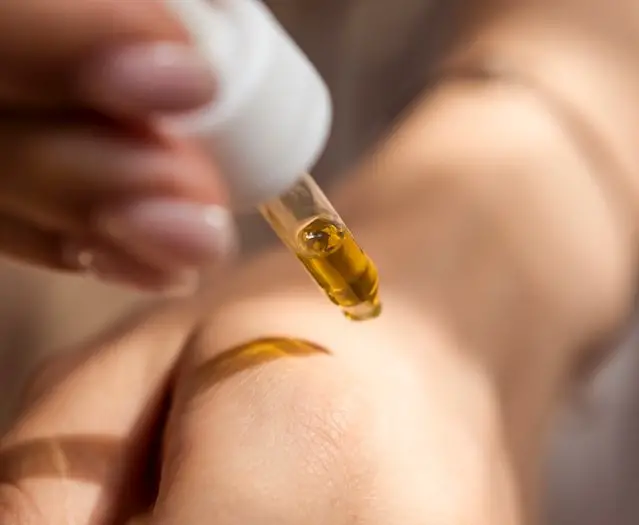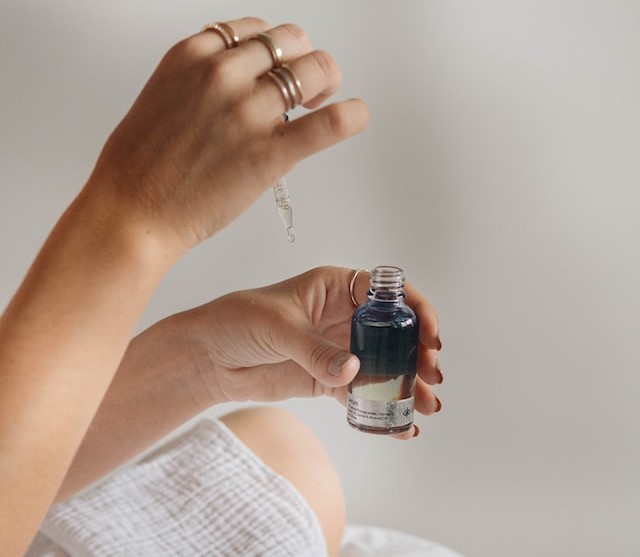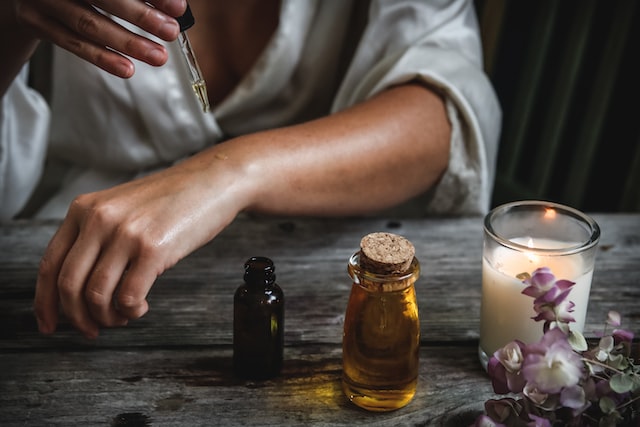Acne is a common skin disorder caused by blocked hair follicles beneath the skin. Acne is an inflammatory skin condition.
Sebum (oil that keeps skin from drying out) and dead skin cells clog pores, causing pimples or zits to appear. The breakouts mostly afflict the face, although they can also affect the back, chest, and shoulders.
Sebaceous (oil) glands connect to hair follicles, each of which contains a single fine hair. The sebaceous glands produce sebum, which is released onto the surface of the skin through the pore, which is a follicular opening.
The follicle is lined with keratinocytes, a kind of skin cell. Keratinocytes come to the surface of the skin when the body sheds skin cells.
Hair, sebum, and keratinocytes bind together inside the pore when someone gets acne. This stops keratinocytes from flaking and inhibits sebum from reaching the skin’s surface.

Because of the oil and cells, bacteria that ordinarily exist on the skin can thrive in the blocked follicles and produce inflammation, which includes swelling, redness, and pain.
When the blocked follicle’s wall breaks down, bacteria, skin cells, and oil flow onto neighboring skin, causing pustules or pimples.
Acne affects people of all ethnicities and ages, but it is most frequent among teenagers and young adults.
Males are more likely to get acne during their teenage years. Acne can persist well into adulthood, and it is more common in women.
Doctors and researchers conclude that excess or high sebum production, a buildup of dead skin cells, and bacterial growth in pores are the major causes of acne.
Acne may also be caused by other factors including hormones, medications, and family history.
Acne can be caused by an excess in androgens, which are male sex hormones. These increase during puberty in both males and females, causing the sebaceous glands to expand and produce more sebum.
Acne can also be caused by hormonal changes associated with pregnancy.
In addition, acne can also be caused by some drugs, such as hormone-based therapies, corticosteroids, and lithium.
While acne does not pose a substantial threat to your health, it can be painful, especially if you have acute acne. Acne can also leave scars if left untreated.
Acne certainly has the potential to cause emotional misery. Acne and acne scars on the face and other visible parts of the body can lower self-esteem and confidence, as well as lead to anxiety and depression.
Adapalene is an advanced retinoid designed for the treatment of acne. It is the only FDA-approved prescription-strength over-the-counter acne retinoid drug.
It is far more dynamic than retinol and starts working as soon as you put it on the skin. It is also the powerful acne-fighting agent present in Differin gel.
The Differin gel containing adapalene is a pore-deep acne treatment. As a result of the reduced acne, it prevents new acne from forming and restores the skin’s natural tone and texture.
Is Differin vegan?
Differin is an acne treatment that is advertised as a viable alternative to Proactiv and other popular acne treatments.
The product is promoted to both men and women, and it has been featured in magazines such as Cosmopolitan.
They sell products for many skin disorders in addition to their acne products.
Differin offers gels, creams, cleansers, and a few more skin-care items, making it a one-stop-shop for a complete skin-care regimen.
Differin isn’t completely vegan. This means that while some of their items are vegan, the majority of them are not.

However, because Differin is primarily an acne treatment brand, there aren’t many additional skincare products available.
As a result, the core of their anti-acne line will most likely be non-vegan.
Differin is free of hazardous chemicals that can cause serious negative effects. All of the components are FDA-approved and completely safe to use.
But that still does not detract from the fact that Differin is non-vegan friendly.
Is it ethical?
Differin is not a cruelty-free product.
They may conduct animal testing on their own, via their suppliers, or through a third party. Animal testing may also be required by law in some countries where Differin is sold.
Galderma, a business that does animal testing, owns Differin. Differin isn’t cruelty-free, and neither is its parent firm.
Differin, therefore, remains uncertified by organizations such as PETA.
“Animals are not ours to experiment on, eat, wear, use for entertainment, or abuse in any other way,” PETA advocates.
They keep an online database of companies that have prohibited all animal testing to help them achieve their objective of ending animal testing.
Differin was researched on lab bunnies and rats at some point, according to a deeper look into the FDA’s database.
Despite the fact that such tests were conducted in the past, Differin was developed from them, which PETA considers being a red flag.
Differin is not cruelty-free in its entirety. Its beginnings as a chemical that was widely studied on lab animals are obvious, and animal testing of related substances is still going on today.
Its effectiveness as an acne treatment is unquestionable. But rest assured, there are other similarly effective vegan and animal-friendly brands available in the market.
Patronizing non-vegan and non-cruelty-free brands like Differin is essentially endorsing what they’re doing, which is causing animals to suffer.

Fortunately, depending on your demands and purchasing choices, there are several vegan options to pick from.
When you endorse vegan brands, you’re encouraging them to keep doing what they’re doing by supporting them.
As more companies adopt the strategy, the selection group will grow, making it easier to choose.
